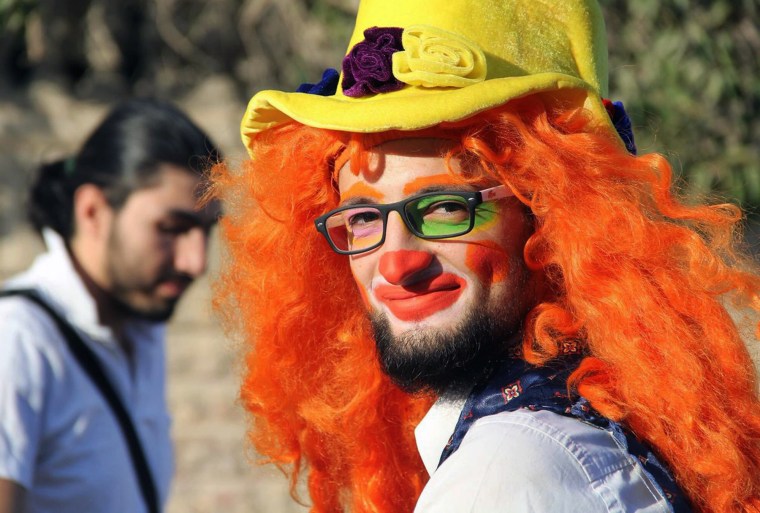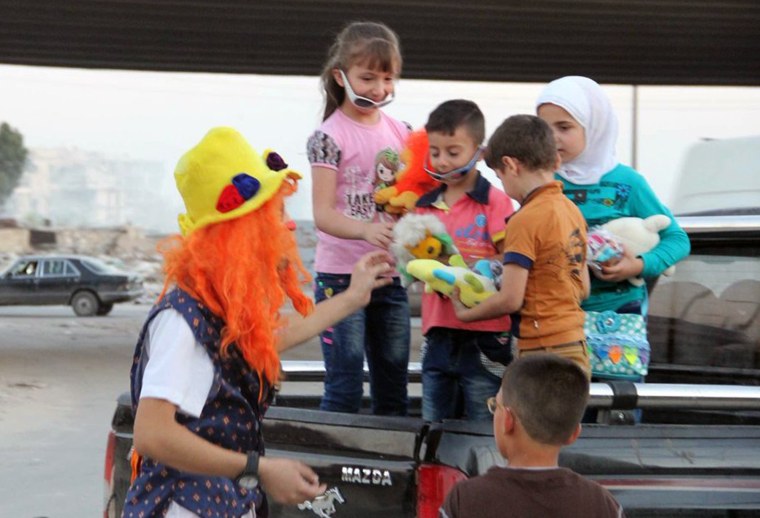In a country besieged by death and violence, Syrian social worker Anas al-Basha worked hard to bring laughter to children by donning a bright-orange wig and acting silly. Better known to his young fans as the “Clown of Aleppo,” Al-Basha was killed in the Mashhad neighborhood Tuesday, the Associated Press reported.
And now even that point of cheer has been extinguished for the many families suffering amid Syria’s civil war.

"He lived to make children laugh and happy in the darkest most dangerous place," Mahmoud al-Basha, who identified himself as Anas' brother, wrote on Facebook.
The death of the 24-year-old clown came as Syrian government forces continued their all-out assault to regain control of what was once the country’s biggest city, which is now a massive pile of ruins where 250,000 people have been struggling to survive — 100,000 of them children.
Al-Basha was a director for a group called Space of Hope and could have fled Aleppo with his parents in July. Instead, he donned a wig, painted his face, and spread joy to Aleppo's youngest victims.

"Anas who refused to leave Aleppo and decided to stay there to continue his work as a volunteer, to help the civilians and give gifts for the children in the streets to bring hope for them,” his brother wrote. “All what Anas wanted is to bring happiness to the children of Aleppo.”
Al-Basha's supervisor, Samar Hijazi, told the AP he had a way of reaching children.
"He would act out skits for the children to break the walls between them," she said.
Al-Basha was also a comfort to the grown-ups, she said.
"All of us in this field are exhausted, and we have to find strength to provide psychological support and continue with our work," said Hijazi.
